Getting Down To The Pit: Why Am I Craving Olives?
Every time you pop an Olive into your mouth and Wonder ” Why Am I Craving Olives?” the meanings can be deeper than what you think. Many people experience a sudden, overpowering desire for these small, flavorful fruits. But why do we crave olives, and what can we do to satisfy these cravings healthily?

Disclosure: This article contains affiliate links, which means we may earn a commission if you purchase through the links on this page. The product recommendations are solely based on our genuine opinions and experiences.
I can’t tell you how many times I’m on my green olive binge where i find myself just sticking a spoon right into the jar. Have you ever found yourself inexplicably craving olives and wondered, “Why am I craving olives?” an what are the connections?
You’re not alone.
We’re here to break down the mystery behind olive cravings and explore their causes, potential health implications, the incredible flavor of olives plus ways to indulge without overdoing it.
We are going to crack into the real reasons you enjoy to crunch and texture of a Fresh Marinated olive or you just got a delivery from your favorite olive oil subscription box and want to use it everywhere and on everything.
Table of Contents
Key Takeaways
Olives have a unique flavor profile and nutritional benefits but should be consumed in moderation.
Emotional connections to olives can influence cravings, and sodium plays a crucial role in providing the salty taste that can lead to them.
Healthy ways to satisfy olive cravings include portion control, alternatives like other olives or olive oil varieties, and stress management through more beneficial coping mechanisms.
Why Am I Craving Olives?
Olives are small fruits harvested from olive trees, often becoming the subject of cravings due to their unique taste and nutritional benefits.
A newfound appreciation for olives may be due to various factors, such as changes in taste preferences, nutritional needs, or emotional connections that lead individuals to crave olives.
The distinctive flavor, nutritional value, and rich source of emotional connections to what olives provide may explain why people love to eat olives and why they are so sought-after.
One’s underlying cause and desire for olives stems from their distinct taste, nutritional advantages, and emotional ties.
However, consuming too many olives can lead to excessive sodium intake and potential health risks. The Answers to your burning questions are so close, whether it’s finding the right balance in your diet or engaging in physical activity we’ll explore these factors in detail to understand why olives are so enticing and how to handle these cravings healthily.
Unique Flavor Profile

Olives have a distinctive bitter flavor, making them popular among savory foods. Their taste can be affected by factors such as their color, ripeness, and processing.
Individuals’ preferences for olive flavors can be attributed to their history, taste preferences, and even salt cravings. With so many varieties of olives available, such as:
Cerignola
Kalamata
Nyon
Gaeta
Each type may be craved due to its unique taste and nutritional benefits.
The unique flavor of olives can be highly appealing and satisfying. Their salty, bitter taste can stimulate our taste buds and make us crave more.
But it’s not just the taste that draws us to olives; their nutritional benefits also play a part in our cravings.
Nutritional Benefits

Olives, including green olives, are highly nutritious and offer numerous health benefits. They are a great choice for healthy food, fats, fiber, and certain minerals like iron and copper.
Moreover, these nutrients are essential for our body’s growth and development. These healthy fats can help keep hunger at bay and provide essential nutrients the body may be craving for proper functioning.
In addition to their nutritional value, olives and other foods can help bolster your immune system and facilitate digestion. However, excessive consumption of olives and salty foods may lead to a variety of health issues, such as:
Headaches
Heart failure
High blood pressure
Kidney disease
Kidney stones
Osteoporosis
Stomach cancer
Stroke
Maintaining a balanced diet and moderate consumption of olives helps to reap their nutritional benefits without jeopardizing one’s underlying health condition.
Emotional Connections When You Eat Olives

Stress, emotions and memories constitute psychological factors. They can have an influence on cravings for olives.
Emotional connections, such as comfort or nostalgia, may factor in the craving for olives. Examples of emotional ties to olives may include convenience, nostalgia, and familiarity.
If you find your cravings difficult to control and they occur frequently, consider seeking advice from a healthcare professional.
They can help identify any potential underlying health issues and develop strategies to better manage your cravings.
Understanding the emotional connections behind your olive cravings can help you better manage them and maintain a healthy relationship with food.
The Role of Sodium in Olive Cravings

The salty taste of olives, a common salty food, can be highly satisfying and may contribute to developing cravings.
Olives contain a relatively high amount of sodium, which is integral in providing a salty taste that can be satisfying and contribute to cravings.
However, consuming an entire jar of olives with high sodium content may result in an increased risk of high blood pressure, stroke, and other cardiovascular diseases.
We’ll further investigate the role of sodium in olive cravings, its health effects, and ways to savor the salty delight of olives without feeling guilty about consuming excess sodium.
Salty Satisfaction

The salty flavor of olives is derived from the curing process, where they are soaked in brine, sugar, or salt water. This process helps reduce the olives’ natural bitterness and imparts a distinct salty taste. The satisfying salty taste of olives can easily trigger cravings, making it difficult to resist eating more.
Sodium plays an integral role in providing the salty taste of olives that can be satisfying and contribute to cravings.
Being aware of the sodium content in olives and enjoying them in moderation can help manage cravings while allowing you to savor their delicious flavor.
Health Implications

Increasing olive consumption is advisable, considering excessive sodium intake from olives can negatively affect one’s health. Excess sodium intake can lead to negative health consequences such as high blood pressure, stroke, and heart disease.
Interestingly, advancements in the coolest dental technology suggest that moderating dietary sodium can also benefit oral health, potentially reducing the risk of conditions like gum disease and tooth decay.
A salt deficiency can also lead to muscle cramping, diarrhea, vomiting, and other symptoms.
To minimize your sodium intake when eating olives, it is recommended to limit your consumption as much as possible and ensure you stay hydrated by drinking plenty of water.
By being mindful of your sodium intake and practicing moderation, you can enjoy the satisfying taste of olives without risking your health.
Pregnancy

Hormonal changes and nutrient needs experienced during pregnancy may cause a strong desire for olives in pregnant women.
Olives are packed with benefits and may help to ward off certain illnesses. They are a great source of hydration, providing ample amounts of water throughout the day.
While olives can offer crucial nutrients and hydration during pregnancy, moderate consumption is highly recommended. Excessive sodium intake from olives can have negative health implications for the mother and the baby.
Nutrient Deficiencies
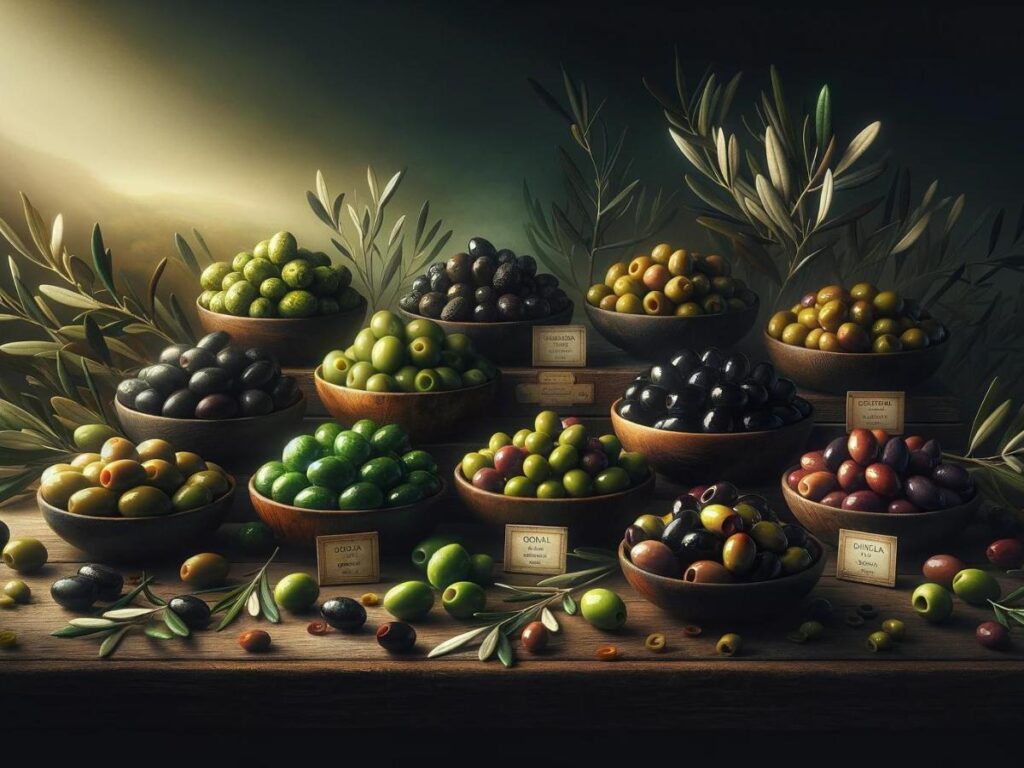
Nutrient deficiencies, including low sodium or iron levels, can result in olive cravings. Craving olives might be your body’s way of signaling a need for more iron and salt, as olives are known to contain these certain nutrients.
In such cases, addressing your olive craving is essential to maintain a balanced diet and avoid a potential salt deficiency.
If a nutrient deficiency is suspected to be driving your olive cravings, seeking advice from a healthcare professional is advisable. They can help determine if any deficiencies are present in western diet and provide guidance on how to address them, potentially helping to alleviate your cravings.
Stress and Comfort Eating

Stress and comfort eating can be linked to cravings for olives. In times of stress, individuals may turn to comfort foods as a way to cope, and olives may be one of those foods.
The act of eating olives can provide a sense of comfort and relief during these times. Furthermore, the taste and texture of olives may be satisfying and help to reduce stress and cravings.
Managing stress and finding healthier coping mechanisms can help you stop craving olives and reduce cravings for other comfort foods. Practicing mindfulness, engaging in physical activity, and seeking support from friends, family, or a mental health professional can all help in managing stress and reducing the likelihood of stress-induced food cravings too.
Healthy Ways to Satisfy Your Olive Cravings

Managing portion sizes and investigating substitute options for olives can assist in satisfying cravings without exceeding the recommended intake. Be mindful of whelphy you crave olives and find healthy ways to satisfy them without overindulging.
Adopting healthy strategies for managing olive cravings allows you to consume the appropriate amount of olives without surpassing your calorie intake.
We’ll discuss healthy methods to fulfill your olive cravings, like exercising portion control and considering olive substitutes like sour fruit.
Portion Control
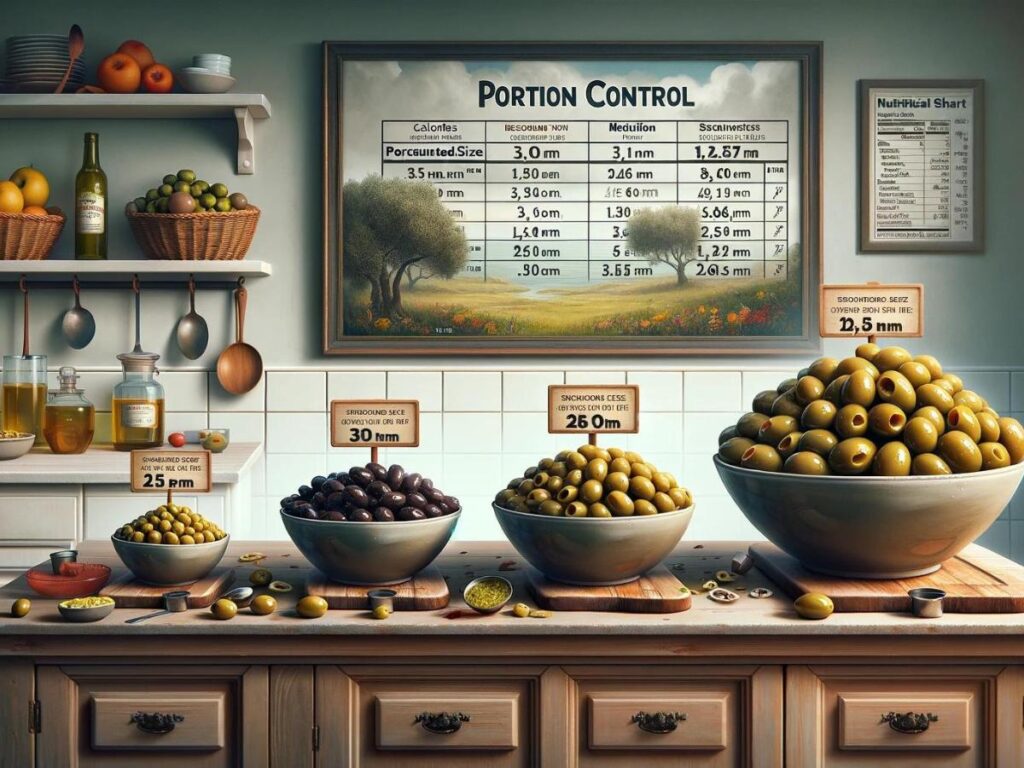
Exercising portion control is vital in managing olive cravings, as it aids in maintaining a healthy weight and prevents overeating.
By practicing portion control, you can ensure you consume the appropriate amount of olives without surpassing your calorie intake. It also enables you to make more informed decisions and maintain overall wellness.
To practice portion control, try:
Measuring out the amount of olives you are eating
Using smaller plates or bowls to help regulate the portion size
Eating slowly and savoring each bite
Being mindful of your hunger and fullness cues
These strategies can help you control your portions and prevent overeating.
Alternatives to Olives
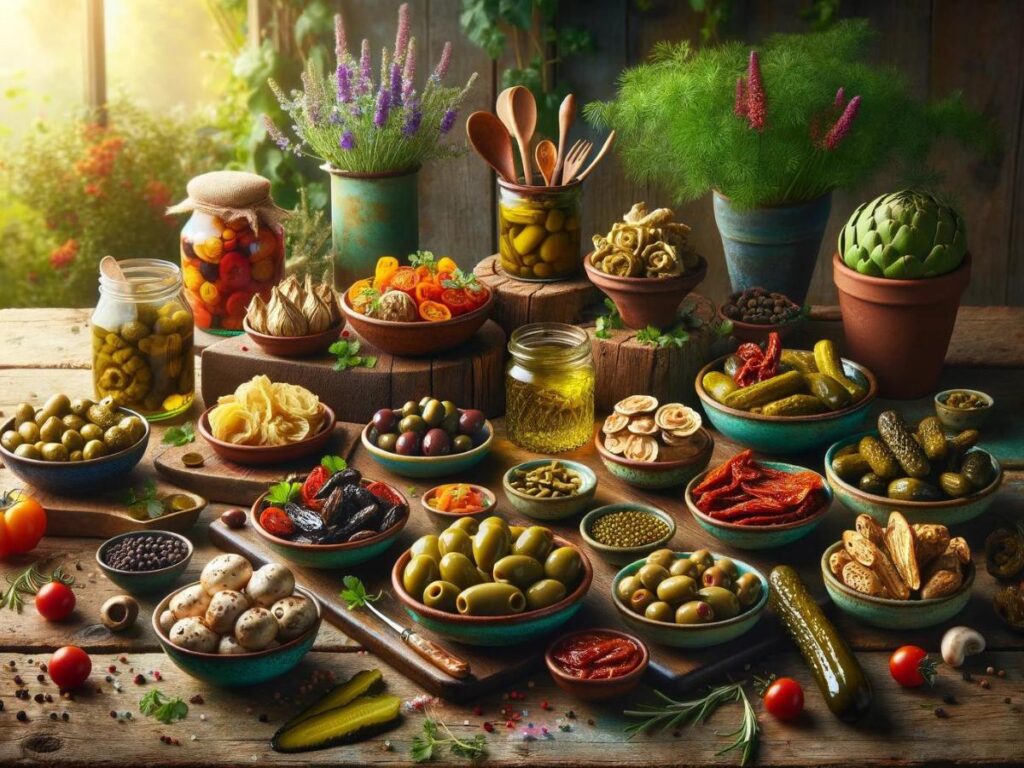
When looking for recipes for something salty or flavorful, many alternatives to olives could help satisfy cravings. Some healthier options for olives include hummus, guacamole, and other dips and spreads.
If you’re looking for something to satisfy your cravings, you may want to consider:
Pickles
Sauerkraut
Kimchi
Capers
Marinated artichokes
Pickled peppers
Anchovies
Sun-dried tomatoes
Pickled onions
These options provide similar flavors and textures to olives and can be enjoyed as snacks or added to dishes for a flavor and Vitamin E boost.
Olive Varieties and Their Benefits
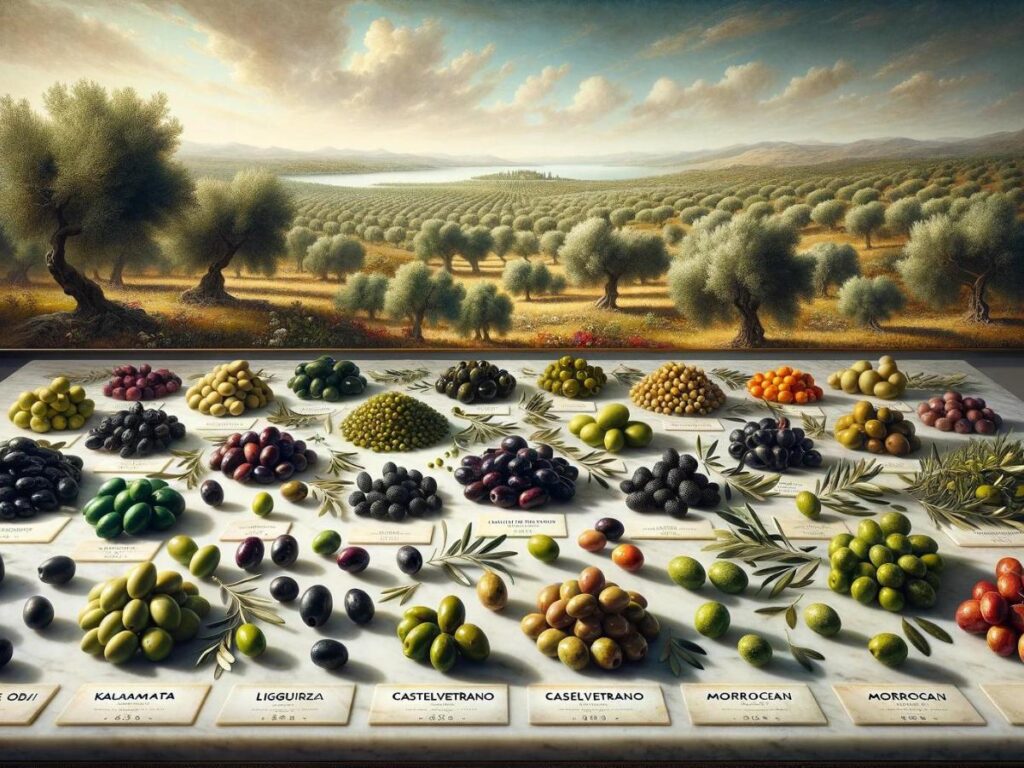
The four most common olive varieties are:
Kalamata olives – dark purple with a robust, fruity flavor
Manzanilla olives – light green with a delicate, buttery flavor
Picholine olives – small and green with a mild, nutty flavor
Niçoise olives – small and black with a rich, salty flavor
Each variety has its unique characteristics.
Not only do these olives vary in flavor, but they also offer numerous health benefits. Some of the health benefits of olives include:
Being an excellent source of beneficial fats, digestive enzymes, vitamins, and minerals
Being rich in antioxidants, which can assist in protecting against disease
Aiding in reducing inflammation
Helping to reduce cholesterol levels
The Impact of Olive Oil on Cravings
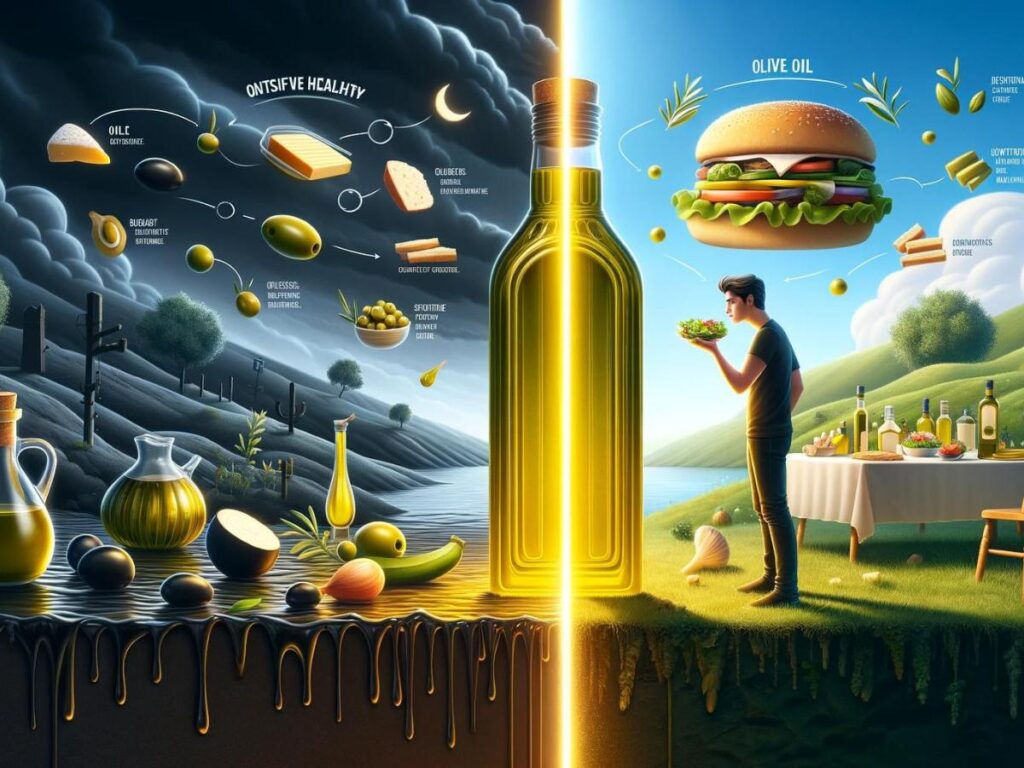
Olive oil can have a beneficial effect on cravings, as it contains healthy monounsaturated fats, antioxidants, and vitamins. Including olive oil in your diet can assist in satisfying hunger pangs while offering health advantages.
We’ll further discuss the health advantages of olive oil and how its inclusion in your diet can help satiate cravings while offering health benefits.
Health Benefits of Olive Oil
With Olive oil being a vegetable oil and not a seed oil provides numerous health benefits, including:
Promoting heart health
Containing powerful antioxidants
Consuming monounsaturated fats found in olive oil may help reduce the risk of heart disease and stroke, as well as maintain cholesterol levels
The antioxidants present in the olive oil may help combat free radicals and protect cells from damage.
Studies have also shown that olive oil can help reduce inflammation, improve digestion, and strengthen the immune system.
With all these health benefits, it’s no wonder that incorporating olive oil into your diet can help satisfy cravings and improve your overall well-being.
Incorporating Olive Oil into Your Diet
Including olive oil in your diet can help satisfy cravings while offering health benefits and skin and hair care benefits. Some uses for different types of olive oil include:
Enhancing the flavor of pasta dishes and marinades
Adding a flavorful zing to salads, roasted vegetables, and grilled meats
Using it as a base for pesto, marinades, and vinaigrettes
By incorporating olive oil into your diet, you can enjoy the delicious taste and health benefits it offers while still keeping your cravings in check.
Not only will you be able to satisfy your cravings, but you’ll also be providing your body with essential nutrients and antioxidants that can help improve your overall health.
Summary
We’ve explored the mystery behind olive cravings and discovered that factors such as their unique flavor, nutritional benefits, emotional connections, sodium content, and hormonal changes can all contribute to our desire for olives.
By understanding these factors and finding healthy ways to satisfy our cravings, we can enjoy the taste and benefits of olives without overindulging or risking our health.
As we’ve seen, the key to managing olive cravings lies in moderation, portion control, and exploring alternatives to olives.
By incorporating these strategies into our lives, we can maintain a healthy relationship with food and continue to savor the delicious, satisfying taste of olives without guilt or worry.
Frequently Asked Questions
Can iron deficiency cause a craving for olives?
Iron deficiency can cause cravings for olives and other food items such as croutons, potato chips, celery, and chewing gum.
Why do I crave Olives and pickles?
It could be that your body is craving sodium, which pickles and olives are full of. Sodium helps keep your body hydrated and could indicate that you need to replenish your electrolytes.
How many olives a day is OK?
Eating about 1/4 cup of olives (around 16-24 small- to medium-sized olives) is recommended per day for optimal health benefits. Eating 5-10 olives daily is great, but try not to overindulge, as this can increase calories and fat intake.
What are the health benefits of incorporating olive oil into your diet?
Incorporating olive oil into your diet can promote heart health, contain powerful antioxidants, reduce inflammation, improve digestion, and strengthen the immune system, offering numerous health benefits.
How can I practice portion control when eating olives?
Practice portion control when eating olives by measuring out the right amount, using smaller plates or bowls, and eating slowly to savor each bite.
Craving olives before period
If hormone changes occur in women after menopause, the olives can be a source of a craving. During the menstruation period, women experience physical and emotional changes. Premenstrual syndrome is an illness whose symptoms may involve olive and salt sensitivity.
This desire can result from erratic or fluctuating hormone levels. It is therefore recommended to drink olive juice and salty snacks at once, and to drink enough water to cover all. In order to prevent the risk of hydration, you need to consume sufficient water every single day.
Is craving olives a sign of pregnancy?
It can happen during pregnancy if the cravings for olive oils have been triggered by dehydration. The pregnancy starts with vomiting or diarrhea. Dehydration can be fatal under either condition. In addition, your body craves olives for balance in the body. It is important for people with low energy to drink plenty of water and keep their bodies hydrated.

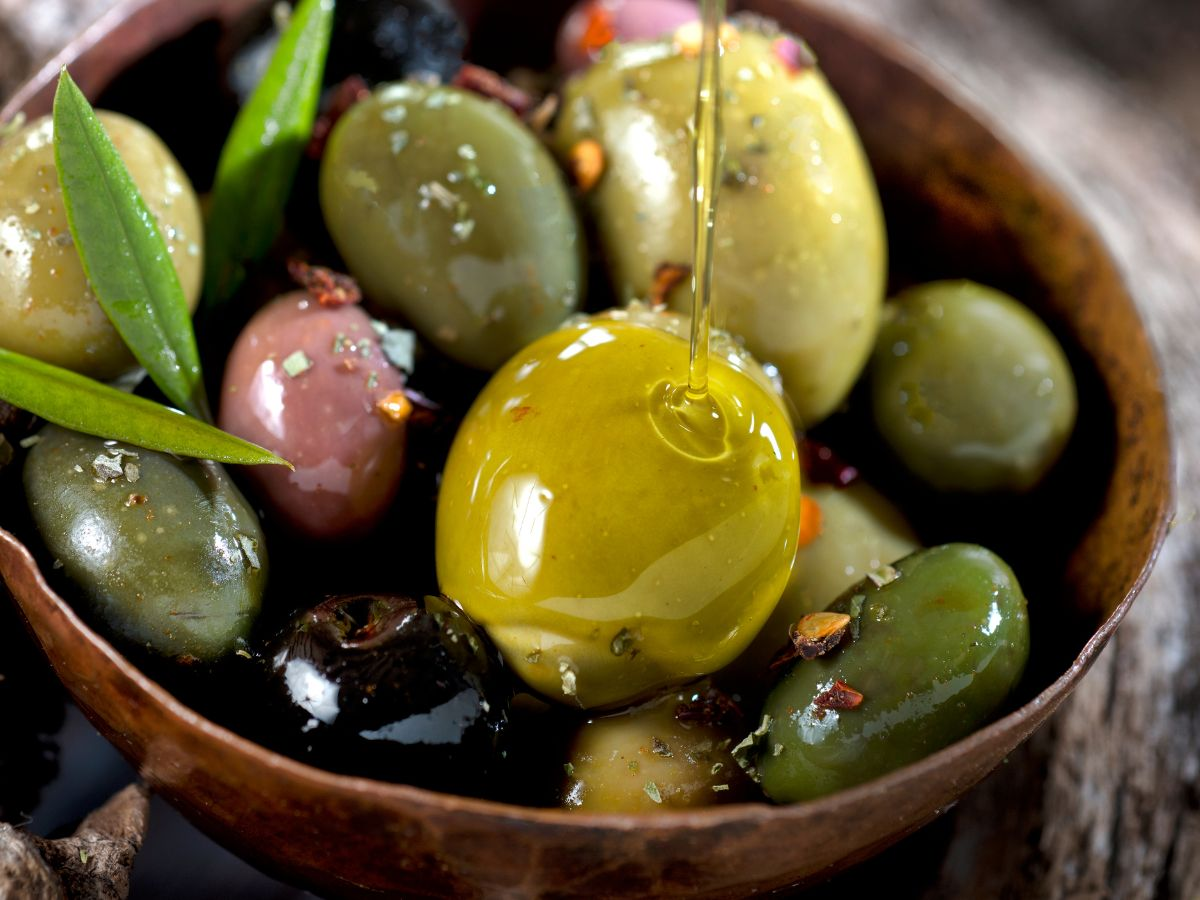
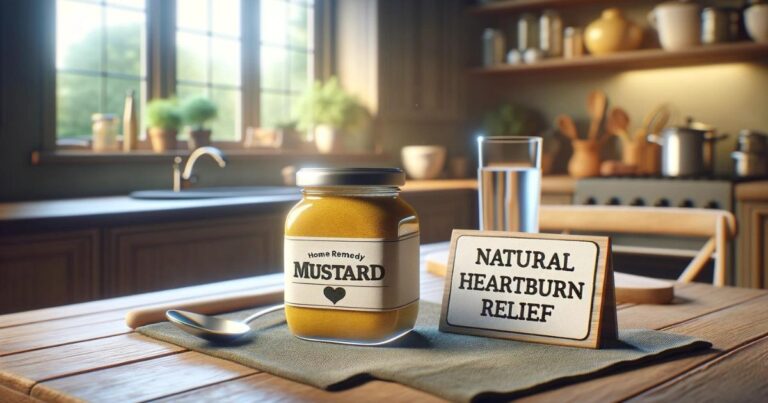
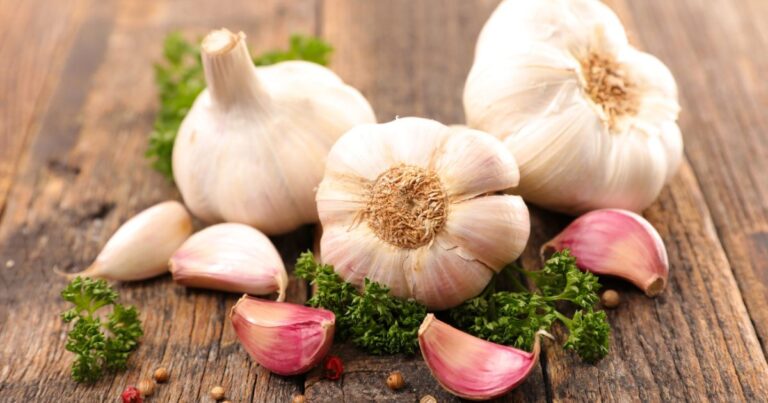

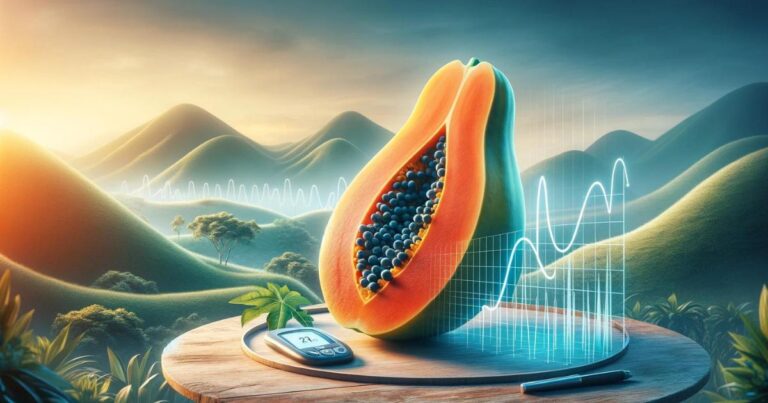


Loved this post! I’ve always wondered why I crave olives so much, especially when they’re not a regular snack for me. The combination of health benefits and flavor explanations was eye-opening. Can’t wait to incorporate more olives into my diet!
I loved this post! I never knew there were so many reasons behind my olive cravings. The fact about their high-fat content and how it relates to our body’s nutrient needs was particularly enlightening. Can’t wait to try some new olive recipes based on your suggestions!
This post was so enlightening! I never considered that my olive cravings could be linked to hydration or nutrient deficiencies. I’m definitely going to explore more about those healthy fats now. Thanks for the fresh insights! 🫒
You are so very welcome. I’m so glad you enjoyed it.